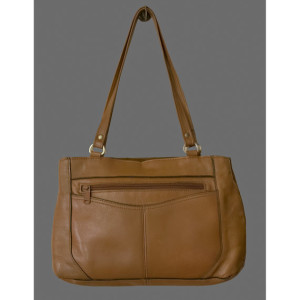Hawthorne, Nebraska probably reminded moviegoers from all over North America of Fill-in-the-Blanksville. It reminded me of Essex, Ontario. The single road that crosses railroad tracks and passes some silos and a water tower before it becomes, briefly, Main Street, then reverts again to a numbered route that runs straight through flat farmland. Main Street, with its tavern, its Family Restaurant (Chinese-Canadian, perhaps), its grocery store and hardware store and liquor store and drug store. In gridded squares off Main Street, the houses, with their cushioned chairs that rock but don’t recline; their floral-print couches draped carefully, back and arms, with crocheted doilies; their decorative wooden cabinets filled with tiny, collectible spoons, and glass bowls filled with gritty, plastic fruit. The houses, with their old people. They’ve known each other for decades and decades, these old people, and they have names that no one has now (Weltha, Cecil, Nelda, Betty, Delmar). They don’t seem to talk about anything except the weather (all of them), cars (the men), and who’s doing poorly (the women, stage-whispery and head-shaky). They ask their visitors half-hearted questions about life in the Big City and make vaguely disapproving noises at the answers. They don’t change, but you do: every time you show up, at Christmas or in July, they exclaim at how much taller you are and say you must know, now, what you want to be when you grow up. (I started answering “a writer” when I was about 10. My Essex grandmother always replied, smugly, “Oh, you’ll change your mind.” At which point I always thought, indignantly, “Why even bother asking?”)
I remember being shocked whenever I saw another child, in Essex—because surely there couldn’t be children there; it was a small, colourless place whose children must have all grown up and moved away long ago, as my father had. It was a place where old folks died, all the time; I knew this for certain because my grandmother took me to funeral visitations, some for people she didn’t even know. But lo: there were children, both in town and living on the dusty-looking farms outside of it. I could tell because some of the houses there had toys in their yards: trampolines, wading pools, swing sets.
A few weeks ago, at around the same time Peter and I saw Nebraska, we started watching Six Feet Under. I caught the first season-and-a-bit when it originally aired, but we’re now well into season three, and un-viewed territory, for me. Strands of movie, show and Essex County are now weaving (possibly knotting) in my head.
In the Fisher house, as in those funeral parlours in Essex, and, inevitably, in Hawthorne, there are old, freshly coiffed people in coffins, and there are kids who’ve grown up and come home again, even if only briefly, to floral-print couches and meatloaf and possibly Jell-O salads with pineapple and mini marshmallows in it (and, in my grandmother’s case, shredded iceberg lettuce underneath, smeared with Thousand Island dressing). (Seriously.)
Sometimes the deceased in Six Feet Under have left particular instructions for the clothes they’ll wear, in their open caskets. Sometimes they haven’t, and it’s their children or spouses who care desperately about (even fight over) the clothing, the earrings, the hair. I’ve never thought of myself as someone who’d care even a little about such things. And as for open caskets—ew. But then my grandmother died. And when I looked down into her open casket, at her adeptly made-up face, her thin but well-coiffed hair, her floral-print dress, I took myself utterly aback by crying. And there was the crowd, too—the many, many people who filed up to us and took our hands and told us what a fine, stern, impressive woman she’d been.
“She would have loved this,” we said to each other, all wobbly and laughing. “God, how she would have loved this.” (Though not that particular use of “God”, which, when we were kids, would have made her snap our names and then purse her lips. But here’s a poignant, fascinating thing: when she got dementia, she went back—waaay back, to a time before she’d been Born Again. For the last few years of her life she was gentle and smiled a lot and never, ever mentioned Jesus.)
The only thing missing, in her coffin, was the giant handbag.
Afterward we followed Main Street out of town until it turned back into a number, running straight through flat farmland. Kilometers later, in Cottam Baptist Church, we wobbled and laughed all over again—because there, arrayed in rows on a couple of long tables, were bowls and bowls of Jell-O salad: green, red, and orange Jell-O, studded with maraschino cherries, pineapple, mini marshmallows, slimy halved grapes and tiny cubes of Granny Smith apple.
Hawthorne, Nebraska. Essex, Ontario. Open caskets. Old people with old-people names: Weltha, Cecil, Nelda, Betty, Delmar.
And Pearl.


Recent Comments